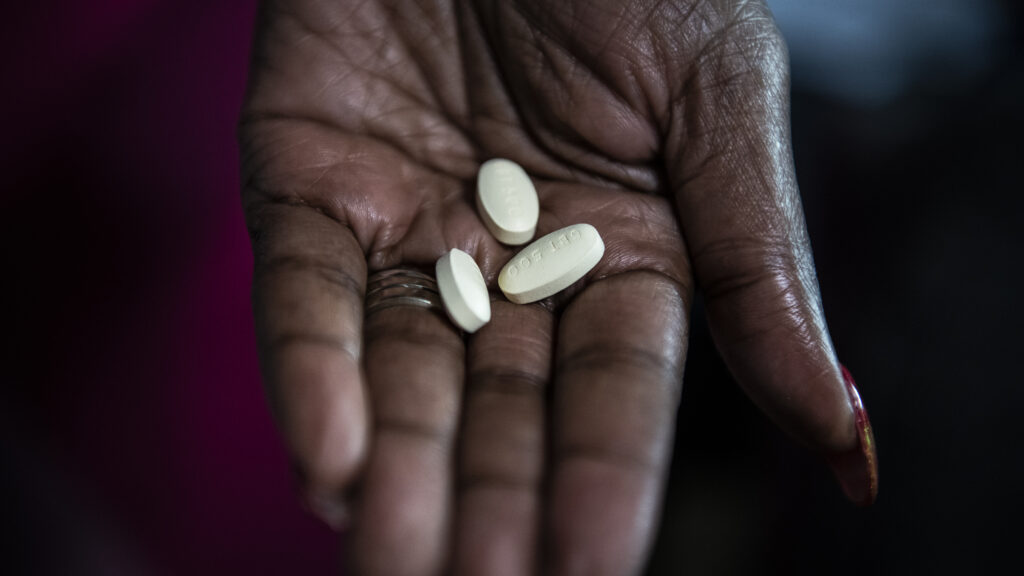WASHINGTON — Congress is considering a must-pass pandemic preparedness bill that presents a good opportunity to fix the nation’s current drug shortages problem, which both parties want to do. But most indications are that lawmakers will let that opportunity pass them by.
Although not new, drug shortages are now a crisis, with an increasing number of reports about cancer doctors having to ration chemotherapies and other drugs.
advertisement
Politicians have been well aware of the problem for years. At the request of a large bipartisan group of lawmakers, a task force chaired by the Food and Drug Administration in 2019 reported on the root causes of drug shortages.
Most shortages occur in generic injectables that are complicated to make and are too cheap for big profits, the report said. The group purchasing organizations that buy in bulk for hospitals drive hard bargains that keep profits razor thin for many complex generics. Drugmakers don’t want to pay for the upkeep of manufacturing facilities or backup production. When drugmakers see a chance to jump back in the market or ramp up production, regulations get in the way.
Passing stand-alone bills can be difficult, but Congress happens to be working on legislation to renew several of the federal government’s biodefense and pandemic-preparedness programs. That legislation, the Pandemic All-Hazards Preparedness Act, or PAPHA, is well-suited for drug shortage reforms, according to Soumi Saha, senior vice president of government affairs at Premier, a group purchasing organization.
advertisement
But that doesn’t mean it’ll happen.
“What we’re seeing is disagreement on what the right vehicle and timeline for addressing shortages is,” Saha said.
Neither the Senate nor House bills to renew the pandemic preparedness law include drug shortage reforms. The core of the draft Senate bill is bipartisan. Health committee chairman Bernie Sanders (I-Vt.) and the committee’s top Republican, Bill Cassidy (La.), each have pet policies they’d like to add to the bipartisan agreement, but neither include drug shortage reforms.
The lead Democrat on the House pandemic-preparedness bill, Rep. Anna Eshoo (Calif.), took her name off of it last month because Republicans refused to add drug shortage measures to it. However, Democrats are not in control of the House, and it’s not clear that they have much leverage.
Republicans on the Energy and Commerce Committee “are committed to reauthorizing these key all-hazards and public health security programs on time,” a committee GOP spokesperson said. “Staying focused on the policies that are under the existing framework is the best way forward to see a bill signed into law before September 30th.”
The House E&C Committee is scheduled to mark up PAHPA on Thursday, though House Republicans removed “pandemic” from the bill’s name. Some House Republicans are wary of anything associated with the Covid-19 pandemic. The title of the House bill is now the Preparedness and Response Reauthorization Act.
The Biden administration has not offered much direction either. The White House formed a drug shortages task force, but it has yet to provide advice.
The FDA has not taken advantage of all of the new powers that Congress gave the agency in 2020 to help with drug shortages, Saha said. Congress directed the FDA to prioritize reviews of applications for approvals of drugs in short supply. Companies that want to ramp up production of existing drugs experiencing shortages are supposed to receive prioritized manufacturing site inspections. It’s not clear that the FDA has used either of those new authorities, and if so, whether they’ve helped. There also are new reporting requirements for drug ingredient makers, and requirements for manufacturing backup plans. But the FDA has yet to finish guidelines for those new requirements.
“It’s difficult for Congress to provide additional authority when existing authority has not been implemented,” Saha said.
David Sanders, executive director of the coalition Securing America’s Medicines and Supply, which advocates for incentives to domestically produce drugs, agrees that if Congress is going to give the FDA more money for foreign inspections or require drugmakers to disclose more information about potential shortages, the agency should ask for it first.
Sanders is lobbying Congress to use the pandemic-preparedness bill to fix the drug shortage crisis. But Sanders doesn’t think that the FDA should be the focus.
In an interview with STAT, he said Congress should focus on giving grants and procurement contracts to domestic suppliers. The money for those grants and contracts could come from unspent funds that were originally meant for the Covid-19 response, Sanders said, which would avoid further deficit increases.
Sanders touted the American-Made Pharmaceuticals Act, which would direct Medicare to test policies that pay more for domestically made drugs or lowering patient out-of-pocket costs for them. That bill was bipartisan when it was introduced last year, but it hasn’t been reintroduced this year. He said his trade group also supports the bipartisan MADE in America Act, which would provide a tax credit to manufacturers operating in the United States.
“We support the FDA and new inspections. We always bring up the FDA when it comes to shortages, but it’s not the FDA’s job to do market surveillance for potential future shortages,” Sanders said.

